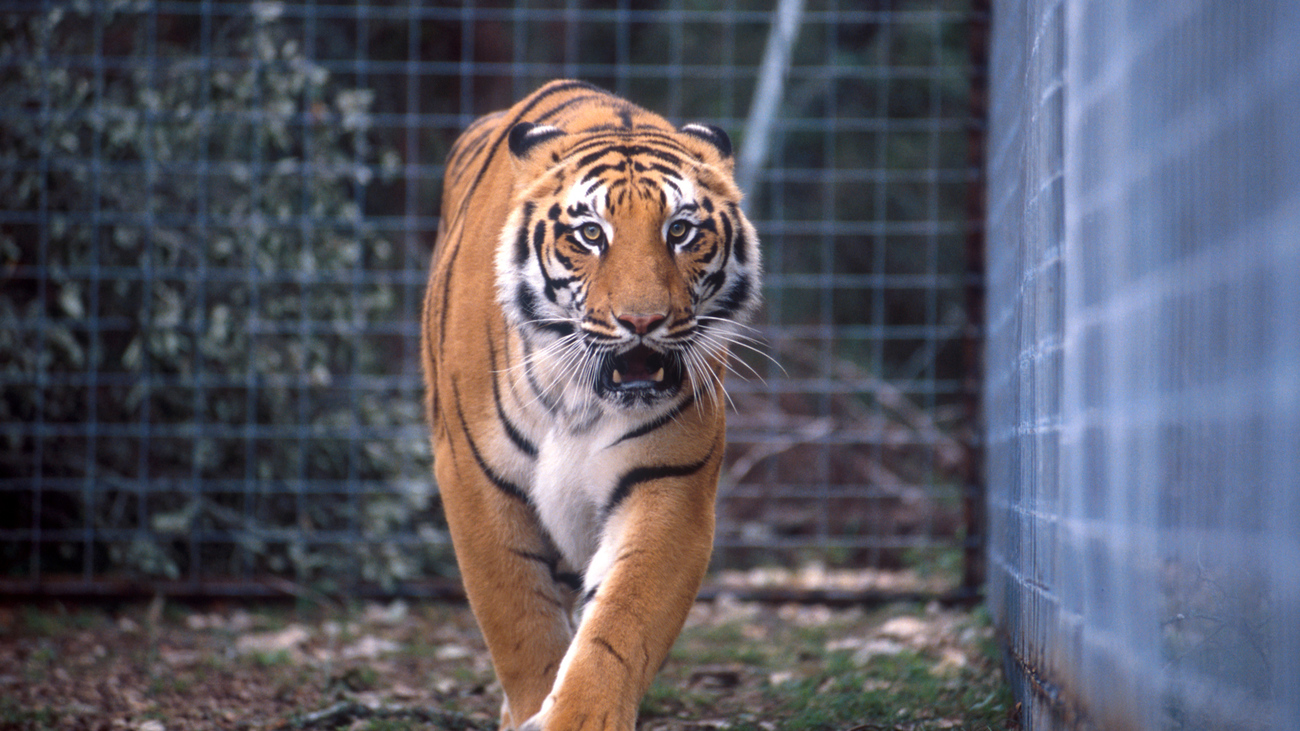Big Cats in Captivity Rescue and Advocacy – United States
There are more tigers in captivity in the United States than there are in the wildSenate approves the Big Cat Public Safety Act in monumental win for captive wildlife
Senate approves the Big Cat Public Safety Act in monumental win for captive wildlife

(Washington, D.C. – December 06, 2022) – In a historic step toward safeguarding captive big cats nationwide, the U.S. Senate passed the Big Cat Public Safety Act (BCPSA). Once signed into law, the measure will prohibit the private ownership of tigers, lions, leopards and other big cats as “pets” while also restricting dangerous contact between members of the public and these apex predators. Led in the Senate by U.S. Senators Richard Blumenthal (D-CT), Susan Collins (R-ME), Tom Carper (D-DE), and Richard Burr (R-NC), the Big Cat Public Safety Act will protect big cats from exploitation and help to safeguard communities and first responders who are put at risk when these animals are held in unqualified hands.
According to Carson Barylak, Campaigns Manager at IFAW, “The Senate’s passage of the BCPSA is an important victory for both captive wildlife and communities, and IFAW thanks the bill’s sponsors in both chambers. This much-needed federal measure will ensure that captive tigers, lions and other iconic felines are protected from coast to coast while also ensuring the safety of first responders and the public.”
Privately-owned big cats are often subjected to mistreatment and woefully inadequate living conditions, while those who profit from exploiting these animals often misrepresent their activities under the guise of “conservation.” Despite such claims, backyard big cat collections, inhumane cub handling exhibits, and “pet” tiger breeding do nothing to benefit these felines’ wild counterparts.
Keeping exotic cats as “pets” also creates serious public safety challenges. Untold numbers of big cats are held in captivity outside of qualified facilities in the U.S., resulting in hundreds of dangerous incidents nationwide, including maulings, escapes, and deaths. Acknowledging this serious risk to communities and the leaders who are charged with protecting them, first responders and safety officials across the country supported the Big Cat Public Safety Act as it advanced through Congress. Once signed into law, this key legislation will help to prevent future tragedies and protect emergency responders while reining in the cruel treatment of iconic animals.
“The Big Cat Public Safety Act will end the horrific exploitation of big cats and bolster public safety. These beautiful but powerful predators deserve to live in the wild, not be kept in captivity for people’s entertainment—even as cubs. I’m thrilled that, after a groundswell of public and bipartisan support, this bill I’ve long advocated for will become law,” said Senator Blumenthal.
Exhibits that promote direct contact between the public and big cats endanger people and animals alike. Tiger and lion cubs may be torn from their mothers shortly after birth to be exploited for pay-to-play experiences and used as photo props, causing enormous suffering to the animals involved. They are often subjected to physical abuse and denied basic veterinary care, proper nutrition, opportunities to engage in natural behaviours and other basic needs.
“Big cats like lions, tigers, and cheetahs belong in their natural habitats, not in the hands of private owners where they are too often subject to cruelty or improper care,” said Senator Susan Collins. “Our legislation will prohibit the private ownership of big cats, which threatens the safety of the animals and the public and harms conservation efforts. I am pleased that our colleagues supported our bipartisan effort to improve the welfare of animals.”
In addition to legislative advocacy, IFAW has collaborated with qualified sanctuaries and helped to rescue 189 captive big cats over the past 15 years from dangerous conditions across the country. In 2017, a group of legitimate sanctuaries established the Big Cat Sanctuary Alliance, an organisation dedicated to eliminating the private ownership and commercial exploitation of big cats and providing quality lifetime care for wild cats in captivity.
Supported by a number of animal welfare and wildlife conservation groups including IFAW, Born Free USA, Big Cat Rescue, Animal Welfare Institute (AWI) and Animal Legal Defense Fund (ALDF), Big Cat Sanctuary Alliance (BCSA), Association of Zoos and Aquariums (AZA), Global Federation of Animal Sanctuaries (GFAS) and more, the Big Cat Public Safety Act is expected to be sent to the President’s desk for signature later on this month.
ENDS
Note to the editors:
IFAW staff available for interviews upon request.
Press Contact:
Rodger Correa
m: +202 834 6637
e: rcorrea@ifaw.org
Related content
Every problem has a solution, every solution needs support.
The problems we face are urgent, complicated and resistant to change. Real solutions demand creativity, hard work and involvement from people like you.